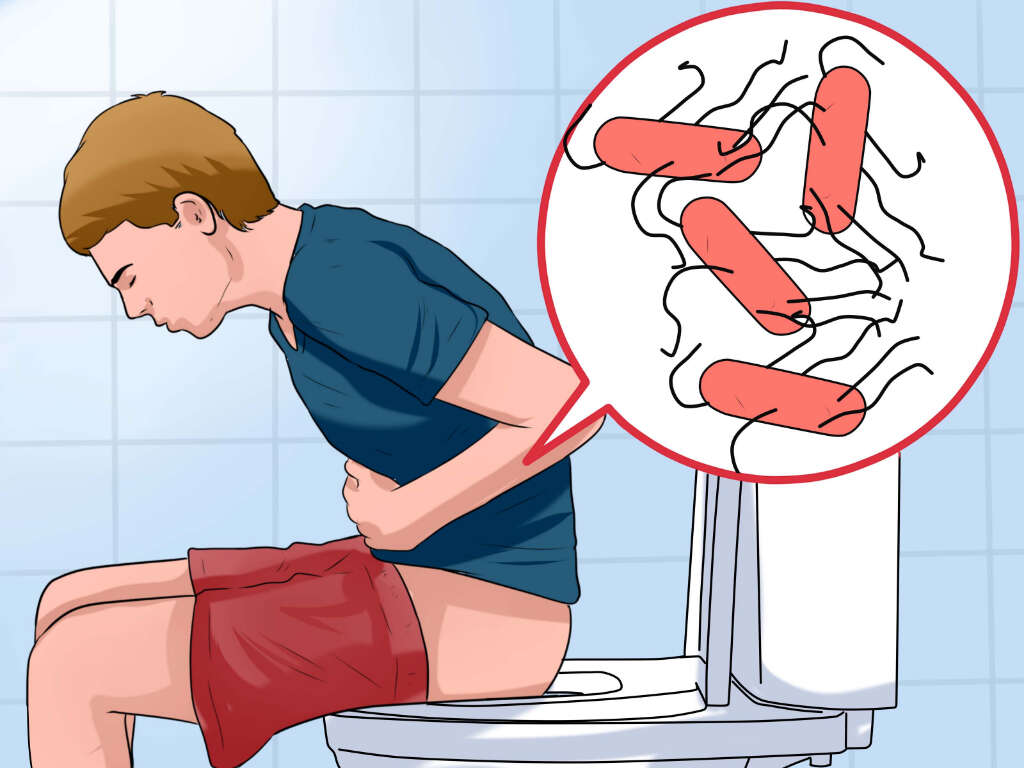10 Hep B Symptoms
Hepatitis B is an infection of the liver. It can cause inflammation of the organ, and also damage, resulting in scarring. It can also make the patient more susceptible to developing cancer of the liver. As such, it is a serious condition and should be treated accordingly.
The good news is that Hep B will usually only last for a few months, and will usually pass having done no permanent damage. If the patient has the chronic variety, which can remain with them for life, it can at least be managed to help limit the impact of the disease. Patients with Hep B can expect to show a number of symptoms, including those below. The pathogen involved is the hepatitis B virus.

1. Fever
Viruses and other pathogens can be very dangerous for us. In some cases, they can even pose a direct threat to our lives. Our bodies know this and when a virus is detected in the body, the immune system sets about dealing with the threat straight away. The immune system has several ways of achieving this.
One of the most common methods is to heat the body up to levels that can be fatal for the patient. This is what we know as a fever and it is a symptom many people with Hep B will experience. A fever is usually accompanied by chills because chills are a part of the mechanism that causes a fever.

2. Aches and Pains
Heating the body up is not the only weapon the immune system has against pathogens. It also has access to chemicals that can do a great deal of harm to invaders. These chemicals are usually released by our white blood cells, and they are very effective in the battle against disease.
These chemicals come with a side-effect, however. In addition to fighting against pathogens, the chemicals can also cause the tissues of our muscles to become inflamed. This can result in the aches and pains that we so often experience when we are sick. The symptom will usually disappear once the infection has passed.

3. Malaise
We’ve all had those days when we just don’t feel right. We may not feel particularly ill but we can feel as though something is wrong, without being able to describe exactly what it is. In many cases, the condition will pass without ever finding out what it was. In other cases, the underlying cause can be a lot clearer.
Many people with Hep B will find that they generally feel unwell. This is a symptom known as malaise and it can be caused by a wide range of illnesses. It is often easy to try and overlook the condition as not being serious, and in most cases it won’t be. It will sometimes be a symptom of a serious underlying condition, however.

4. Fatigue
Getting tired is perfectly normal, and it happens to people even when they are in the best of shape. If you are ill, however, then there’s a good chance that you will feel tired a lot more easily than usual. In many cases, you may feel tired even shortly after you have just woken up. This symptom is known as fatigue and is common among patients with Hep B.
It happens partly because your body is using up a lot of resources to help fight the infection. It can also be because the liver, which plays an important part in metabolism, is unable to function properly. You should always speak with a doctor about fatigue if the symptom lingers, or if it is particularly severe.

5. Abdomen Pain
The liver is located in the abdomen area. It is actually the largest of our organs and is located just above our stomach. Most of the organ is found toward the right side of our body. It follows that if something was to go wrong with our liver, we will feel discomfort in this region of our body.
Patients with Hep B will often experience pain in the abdomen, particularly in the upper right portion. Stomach pains are not uncommon and many people are likely to put it down to indigestion or similar. When accompanied by other symptoms, or if it is particularly painful and/or persistent, you should arrange to get it checked out by a medical professional.

6. Diarrhea
Diarrhea is one of those symptoms that people tend to avoid talking about. It can be a very unpleasant symptom and it can also be embarrassing. If you have the condition, then you may need to be sure that you are never too far away from a bathroom. Diarrhea is also a relatively common condition.
Many things can cause diarrhea, one of which is Hep B. It happens because the digestive system is very irritated, and this can cause food to be passed through the system faster than usual. Diarrhea has the potential to lead to other complications if it is severe enough, including malnutrition and dehydration.

7. Loss of Appetite
A healthy person will have a healthy appetite. This is extremely important because our bodies need lots of energy and nourishment, and hunger compels us to take them on board. If we were not compelled to eat then we would not get the nutrients we need, and this can lead to further problems.
A loss of appetite is a symptom that many people with Hep B will experience. It is still important that the patient eats enough, however regardless of how little they feel like it. It will also help to eat a diet suitable for such an infection. This includes lots of fruit and veg, lean proteins, and limited fats.

8. Nausea
Many diseases will make us feel nauseous. It is the horrible sensation that you are going to vomit at any moment, while your stomach may also be feeling very uncomfortable. It is actually a mechanism that helps to keep us safe, but that does not make it any less unpleasant.
Nausea is a symptom that often comes with Hep B, and it can also sometimes lead to vomiting. Vomiting is a symptom that can cause other problems if it means that patient is unable to absorb the nutrition they need. This can lead to malnutrition and also dehydration in some cases.

9. Light Colored Stools
Our stools are naturally a shade of brown, although the exact shade can vary according to a number of factors, including what we eat. The brown hue is down to the presence of bile, which is a liquid that is secreted into the digestive system to help break down our food. Bile helps break down fatty foods especially.
Hep B can mean that the liver is not producing bile as it usually would, hence the liquid will not be secreted into the digestive system. This, in turn, means that our stools are lighter than usual. The patient may also have urine that is darker than normal, which is down to the presence of a substance known as bilirubin that is usually processed by the liver.

10. Jaundice
As mentioned, the liver will usually process a substance known as bilirubin. This substance is harmless and is a by-product of the breakdown of expired red blood cells. If the liver is unable to process this substance as it usually would, then it will be found flowing in the patient’s blood stream in higher than usual quantities.
As the bilirubin flows around the circulatory system, so it will begin to accumulate in the patient’s bodily tissues. This will cause these tissues to take on a yellow hue because bilirubin is itself yellow in color. Jaundice is not dangerous, but is a sign of a potentially dangerous underlying cause. As such, you should always get it checked out.









